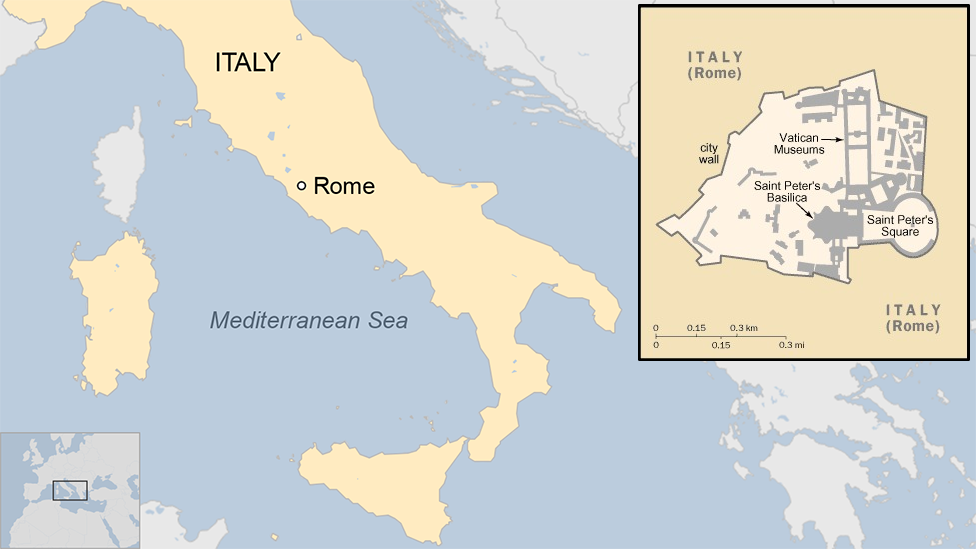Vatican trial: Verdict due for Pope's ex-butler Gabriele
- Published
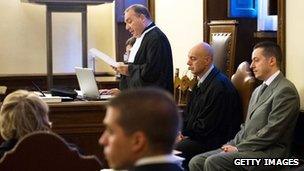
Paolo Gabriele (right) was regarded as totally trustworthy
Five months after his arrest on charges of stealing thousands of pages of secret correspondence and documents from Pope Benedict's private office in the Vatican, his former manservant Paolo Gabriele is about to learn his fate.
If found guilty - and he has already confessed to Vatican investigators - he faces a possible maximum four-year prison sentence, which he would serve in an Italian jail under a treaty signed with Italy during fascist times.
However, Vatican sources say there is a strong possibility that Pope Benedict will use his power to pardon Mr Gabriele in the near future, perhaps even before he begins to serve a sentence. Even if he is convicted by the Vatican City Court, he will not be sent to prison until an appeal takes place, which could take months.
Mr Gabriele, a 46-year-old father of three who worked his way up in the Pope's domain from a cleaner's job to the post of butler, valet and sometimes - if we are to believe him - close confidant of the pontiff, spent nearly two months in a police cell and just over another two months under house arrest awaiting trial on charges of aggravated theft.
He appeared in court smartly dressed in a pale grey suit and answered the presiding judge's questions on the second day of the trial precisely and fully.
From the evidence before the court, the butler emerges as a rather devout Catholic believer who until this year was regarded by the small community of men and women who make up the papal household as totally trustworthy. He kept the keys to the papal apartments, and had access to the entire top floor of the Apostolic Palace where Pope Benedict lives, sleeps and takes his meals.
When the Pope travelled, Mr Gabriele was seated in the Popemobile beside the driver. When it rained he held a white umbrella to prevent the Pope from getting wet. He was the Pope's shadow, the layman with closest access to the pontiff.
His position afforded him considerable prestige inside the Vatican where he still lives with his family in a modest "grace-and-favour" apartment only four minutes walk from his job.
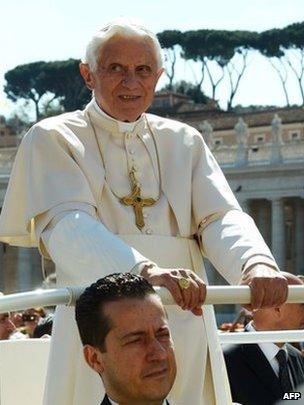
The Pope's butler was one of a restricted number of people with access to his personal apartments
Tension in court
He told the court that because of the "evangelical imprint" of his duties, he felt obliged to help other Vatican employees who did not enjoy the privilege of such close contact with the pontiff. He said he was often waylayed on his short walk back home by colleagues asking him to hand in a petition or a letter to the Pope because of the privileged position he enjoyed inside the Pope's immediate entourage.
Sometimes, he said, he would ask for a driver to take him directly back home to avoid the embarrassment of having to refuse such favours.
Mr Gabriele's body language in court sometimes betrayed tension, and when Monsignor Gaenswein - Pope Benedict's private secretary and his immediate superior - was giving evidence, the two mens' eyes never met.
The butler sprang to attention both as Monsignor Gaenswein entered and exited the small wood-panelled courtroom. The secretary had been the first to confront Mr Gabriele with the accusation that he was the person who had been leaking confidential Vatican documents to the Italian media.
What the trial has not revealed so far is the real motive behind Mr Gabriele's apparent betrayal of the Pope's confidence, nor whether any Vatican senior clerics were involved in the most serious internal security breach suffered by the Holy See in living memory.
Vatican police officers gave evidence that when they searched Mr Gabriele's study in his home, they found one large cupboard stacked from floor to ceiling with a disorderly jumble of documents taken from the Pope's office over a period of years.
The documents included original letters initialled by the Pope indicating that he had read them personally, many photocopies, flash sticks and computer disks, and the results of thousands of internet searches on such varied subjects as Freemasonry, espionage, secret agents, yoga and Buddhism. Police said the material seized from Mr Gabriele's home filled 82 cardboard boxes of a size typically used by house movers.
The Vatican decided early on to speed up the criminal proceedings by reducing the accusations against the butler to a single charge of "aggravated theft". Originally, the prosecutor had raised other possible charges of conspiracy, crimes against the Vatican City State, defamation and revealing state secrets (all Vatican employees are required to swear an oath of secrecy regarding everything they see and learn in the course of their duties).
After the defence and prosecution have made their summing up on Saturday morning, the three judges will retire to consider their verdict and pass sentence.
- Published3 October 2012
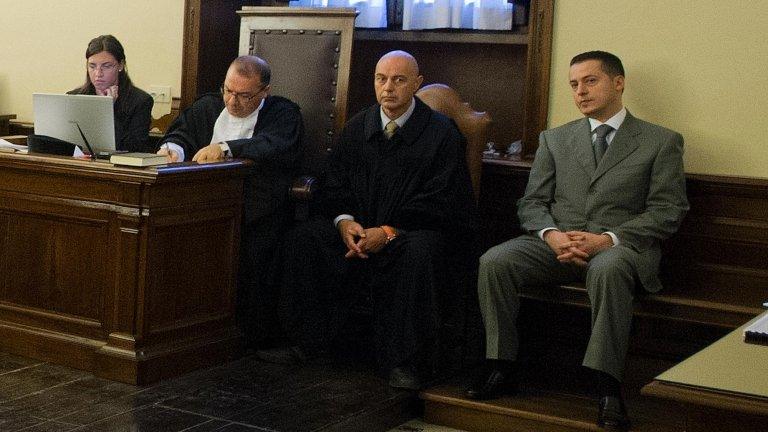
- Published22 December 2012
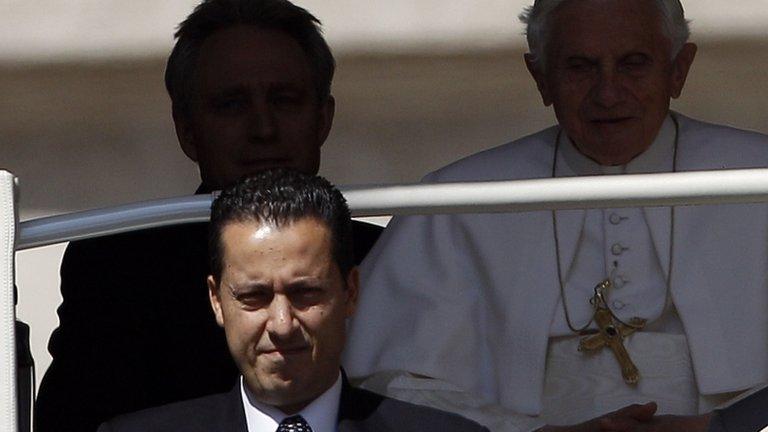
- Published17 November 2023
